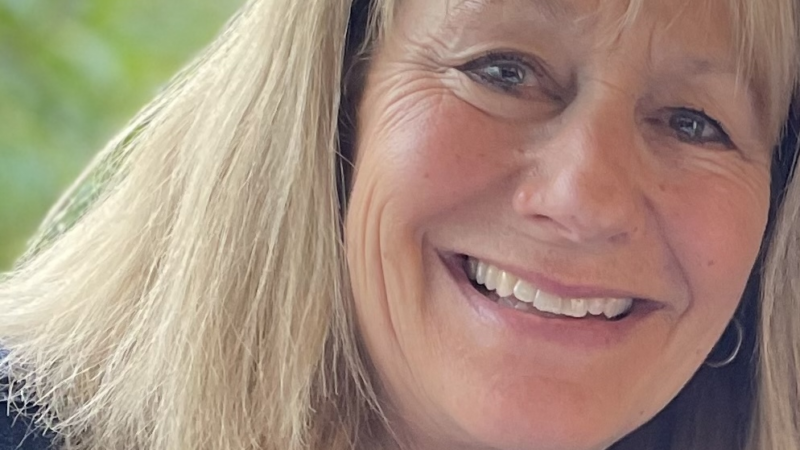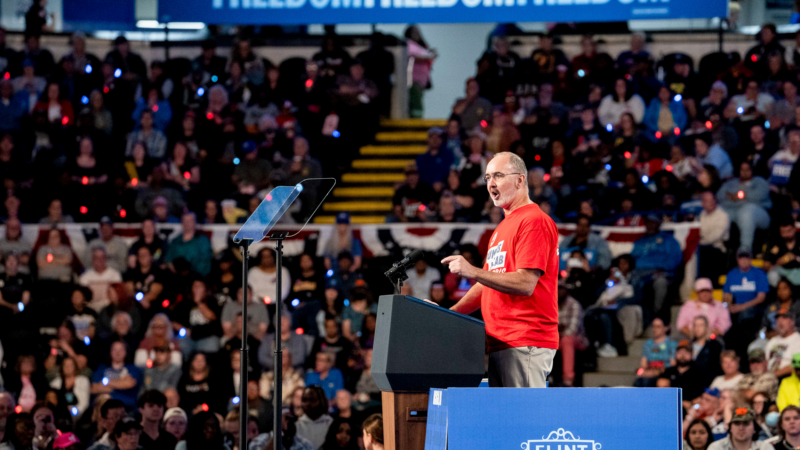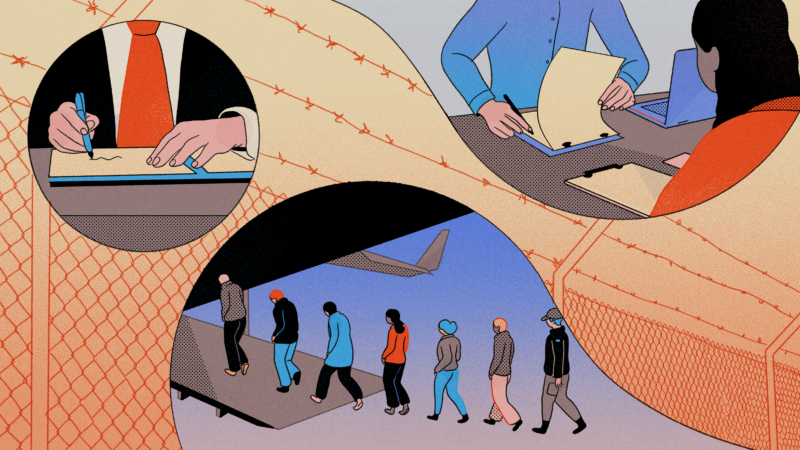Effective immediately: CDC can’t talk to WHO. What will that mean for world health?
This week, as officials at World Health Organizations convene meetings discussing everything from Marburg virus in Tanzania to mpox in the Democratic Republic of Congo, there are some empty seats in the room — and fewer attendees at virtual meetings.
Officials from the U.S. Centers for Disease Control and Prevention are missing.
On Monday, public health officials at CDC were told to immediately stop communicating with the World Health Organization in a memo that was sent to division directors, their deputies and others by John Nkengasong, the deputy director for global health at CDC.
The order comes on the heels of President Trump’s inauguration day announcement that he was starting the process of withdrawing from the WHO, a U.N. agency that the U.S. helped found in 1948. In Trump’s executive order, he recalled all U.S. personnel who work at WHO. The order explained that the U.S. is leaving because of WHO’s “mishandling of the COVID-19 pandemic,” unequal payments from member states and an “inability to demonstrate independence from the inappropriate political influence of WHO member states.”
According to the official process for the U.S. to terminate membership, the country must give a one-year notice. However, this ban on communication takes effect immediately and does not allow for a transition period.
What the ban could mean
Officials inside the CDC and global health specialists outside of the organization are trying to understand the ramifications of this order both for the U.S. and for the world.
“This is unprecedented,” says Javier Guzman, the director of global health policy at the Center for Global Development.
CDC collaborates with WHO on a wide range of health efforts, including the ongoing efforts to quash a major mpox outbreak in parts of Africa and an outbreak of Marburg virus, which is Ebola’s cousin, in Tanzania. The U.S. has donated more than a million vaccines to these efforts and sent expert teams to support the local response.
Asked to comment on the future of these collaborative efforts, a spokesperson for WHO wrote in an email to NPR, “we are analyzing developments and do not have further information at this time.”
“There are a lot of people who are looking forward to further clarification and direction from the incoming administration,” said a CDC official, who asked for anonymity because they are not authorized to speak to the press. They said they can’t remember another presidential transition that included a directive similar to this. “I am not aware of any sort of communication that’s gone out to CDC employees like this one.”
A request for comment from CDC’s media team was referred to the Health and Human Services media team, which has not responded.
How they’ve worked together
Among many other collaborations, the two agencies also work together on worldwide efforts to monitor and contain influenza. WHO runs the Global Influenza Surveillance Network. Josh Michaud, the associate director for global health policy at KFF, says that it may be challenging for the U.S. to develop flu vaccines each year tailored to the current strains of the virus that are circulating if scientists don’t have access to the samples provided through the WHO system.
“There might be third parties which could create some communication channels and U.S. pharmaceutical companies on the private side could continue to have some kind of contact,” he says. “But it definitely throws a wrench a little bit in the works of what had been a system which is really important – not just for global health security, but for U.S. health as well.”
“It’s absolutely vital that the CDC and WHO are talking to each other about what’s happening. So a ban on that? I just can’t see what benefit it has, but I see that it has a massive downside,” say Dr. Chandy John, director of Indiana University School of Medicine’s Ryan White Center for Infectious Diseases and Global Health.
Others agree. “It’s very hard for me to see any U.S. national interest that’s being advanced here. And quite the contrary, I just think it’s making it very hazardous for Americans,” says Lawrence Gostin, professor of global health law at Georgetown University and director of WHO’s Center on Global Health Law.
For example, he says, WHO is convening an international meeting of experts who will discuss bird flu, among other things. Bird flu has been circulating widely in livestock and wildlife in the U.S. Without CDC representatives at the meeting, he says, CDC will be unable to examine the shared data from other countries where bird flu has been identified and understand how the virus is evolving and spreading across species. Gostin says this new clampdown on communications could hinder the country’s ability to prevent humans from being infected as well as to develop medications and vaccines to combat bird flu.
“Not only is it reckless, but I think it’s lawless,” Gostin adds, explaining that even with the Trump administration’s announcements, the U.S. is a party to the International Health Regulations and obliged to follow its guidelines. This is a legally-binding agreement managed by WHO that requires states to monitor health threats and report them to the WHO. However, there is not a strong enforcement mechanism for countries that don’t comply.
“We criticize China relentlessly for failing to abide by [IHR] in rapid reporting and communicating of the Wuhan outbreak,” says Gostin. “Why we would want to be in the company of China or Russia, that violates these international global health norms, certainly beats me.”
In addition to withdrawing from WHO and halting communication between CDC and WHO, Trump has paused almost all foreign aid, including many health programs. Taken all together, KFF’s Michaud calls the moment “incredibly precarious.” And, he says, “for global health, it could mark a turning point” in how the U.S. contributes to the international effort to tackle diseases.
The start to Trump’s second term has also seen major domestic news unrelated to global health such as halting many federal funding and grant programs. This worries Guzman of the Center for Global Development. “Everyone is being flooded with so many decisions and so many executive orders and the effects [of the CDC and WHO collaboration] are not immediate, that it’s likely that this might slip under the radar,” he says.
Colon cancer survivors who exercise regularly live longer
Colon cancer is on the rise in younger people in the U.S. New research shows regular exercise can help survivors live longer — in some cases even longer than people who didn't have cancer.
A young boy safely returned to his family after getting lost at the NYC Marathon
After Nancy Willis finished the New York City Marathon, she went to greet her family, only to discover that her 8-year-old son was missing. After a frantic search, a woman appeared with the boy.
Between tariffs and survival, American business owners are doing alarming math
Many U.S. shop owners feel like collateral damage in President Trump's trade war, on the hook to pay big new fees and long unable to manufacture in the U.S.
UAW President Shawn Fain explains why he supports Trump’s tariffs
Shawn Fein supports auto industry tariffs but calls broad tariffs "reckless."
How does deportation work, and how much does it cost? We break it down
NPR spoke to immigration experts and lawyers and reviewed government documents to break down the steps and associated costs of the U.S. deportation process.
Landmark day for college sports as judge holds final hearing on major NCAA settlement
A class-action lawsuit involving thousands of current and former college athletes, known as House vs. NCAA, would transform college sports by allowing schools to pay players directly.








